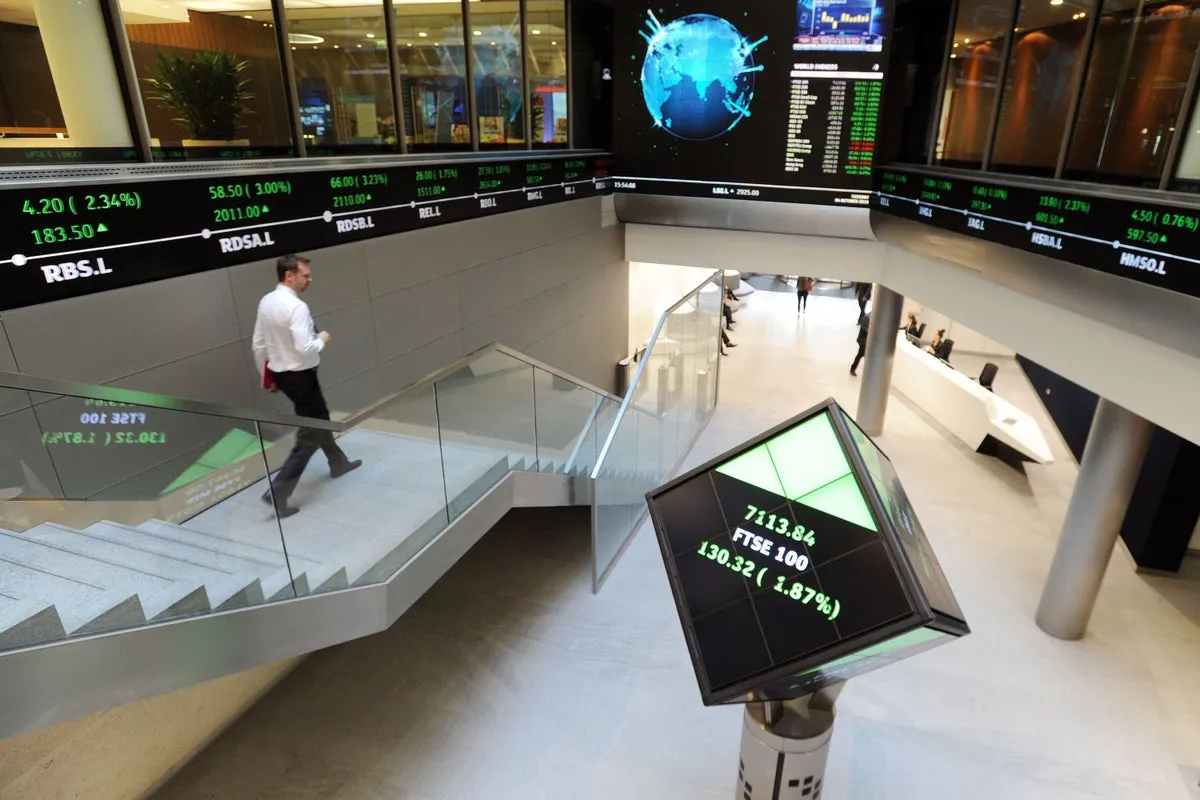Technology
AI Firms Dominate UK Tech IPO Market

Artificial intelligence has become the defining force of the UK technology sector, reshaping the country’s capital markets and investor strategies. The surge in AI-driven startups going public over the past year signals a revival of London’s Initial Public Offering activity, which had slowed considerably following the global economic turbulence of 2023 and 2024.
Market data from the London Stock Exchange indicates that technology listings accounted for nearly 40 percent of new IPOs in 2025, with AI firms representing the largest share of total capital raised. Analysts say this trend reflects not only investor optimism in the long-term potential of artificial intelligence but also the UK’s growing reputation as a regulatory and innovation-friendly environment for emerging technologies.
AI Emerges as the New Investment Frontier
The dominance of AI firms in this year’s IPO market underscores the structural transformation of Britain’s digital economy. Companies specializing in machine learning, data analytics, and automation technologies are now leading fundraising rounds once dominated by fintech and e-commerce.
Investors are particularly drawn to firms that focus on applied AI across industrial and service sectors. From healthcare diagnostics to predictive maintenance in manufacturing, these companies are providing scalable, revenue-generating solutions. Their emphasis on practical use cases has helped differentiate them from speculative technology ventures that previously fueled short-lived market enthusiasm.
According to leading investment banks, AI firms listing in London are benefiting from higher valuation multiples compared to global peers. This confidence stems from strong intellectual-property portfolios, government support for ethical AI frameworks, and robust institutional demand for automation solutions.
Government Policy Strengthens Market Confidence
The UK government’s AI Strategy, launched under the Department for Science, Innovation and Technology, continues to influence market sentiment. Through a mix of tax incentives, public research grants, and cross-sector partnerships, the policy encourages both domestic and foreign firms to list in London.
Regulators have also taken steps to make IPO procedures more efficient. The Financial Conduct Authority has streamlined disclosure requirements for growth-stage technology companies, enabling faster market access while maintaining transparency standards.
This supportive environment has drawn the attention of international investors seeking stable jurisdictions with predictable governance. London’s dual listing options and its established base of institutional investors provide an additional layer of credibility for high-value AI firms.
Institutional Investors Turn Toward AI Infrastructure
While most attention is focused on AI software developers, the market is also seeing a wave of IPOs from infrastructure providers that support artificial intelligence ecosystems. These include data-center operators, semiconductor firms, and cloud-computing platforms that power AI model training and deployment.
The growing need for computing capacity has created strong secondary demand for companies building the physical and digital foundations of the AI economy. London’s capital markets have proven capable of financing these capital-intensive ventures, offering them long-term investor stability that complements their strategic ambitions.
Pension funds and sovereign wealth institutions have also begun allocating a portion of their technology portfolios to AI infrastructure. They view these assets as long-duration investments that align with macroeconomic goals such as digital competitiveness and productivity growth.
The Role of Ethical Standards in AI Valuation
An important dimension of the UK’s AI market is its commitment to ethical oversight. Unlike some global peers where regulation remains fragmented, Britain’s unified policy on AI governance has given investors greater confidence in the sustainability of innovation.
Companies preparing for IPOs are now expected to include ethical-use disclosures in their prospectuses. These outline how data is collected, processed, and secured. The adoption of such standards not only improves transparency but also attracts socially responsible investors who prioritize governance and accountability.
Experts suggest that ethical compliance could soon become a premium factor in AI valuations, allowing well-regulated British firms to command stronger investor loyalty in the global market.
Challenges and Global Competition
Despite strong momentum, the UK faces stiff competition from the United States and Asia, where technology listings often achieve larger valuations due to deeper liquidity pools. Some London-based companies continue to consider dual listings in New York or Singapore to access global investors.
Market analysts caution that while AI optimism is justified, valuations must remain grounded in profitability and measurable performance. The next test for the sector will be its ability to deliver consistent earnings growth amid rising competition and tighter monetary conditions.
Nevertheless, the current wave of AI IPOs has revitalized investor interest in London’s capital markets. It demonstrates that strategic policy, ethical governance, and robust innovation pipelines can combine to create a sustainable foundation for technological growth.
Outlook for 2026 and Beyond
As artificial intelligence becomes integrated across industries, the UK’s technology market is expected to deepen its leadership in both innovation and regulation. With continued government support and investor engagement, London is well-positioned to remain a preferred listing destination for next-generation AI firms.
Economists predict that by 2026, AI-related companies could account for nearly half of all UK tech IPO proceeds. This trend not only reinforces London’s position as Europe’s digital-finance capital but also signals a broader economic transition toward data-driven productivity and innovation-led growth.






















